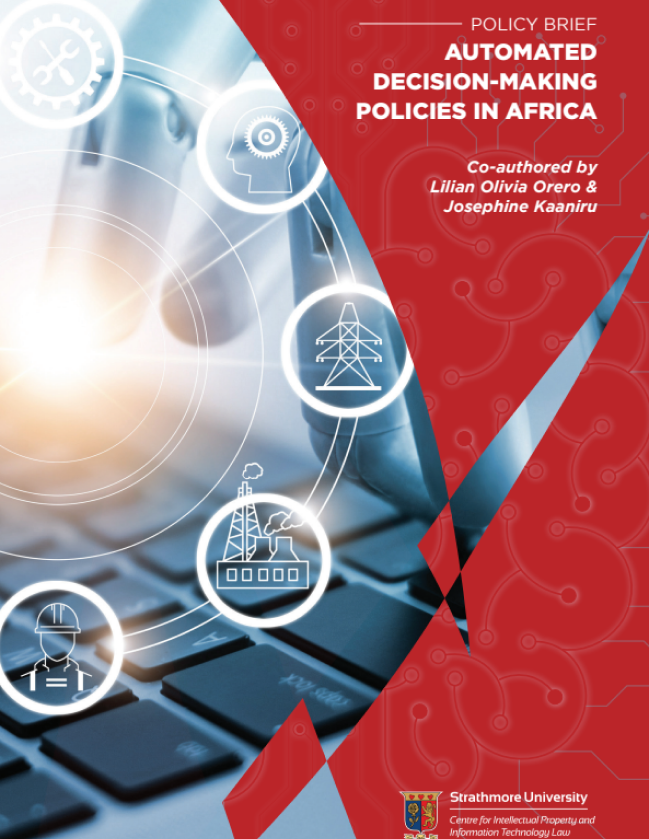Data and AI
- CIPIT |
- October 31, 2023 |
Research on the Data Governance Structures of AI Across Africa.
The fast developing AI ecosystem in Africa promises to address the challenges on the continent by, in part, driving growth and development in the key sectors of agriculture, healthcare, public service and financial services. Data is at the core of the development and use of AI technologies.
Data governance (DG) is the process of managing the availability, usability, integrity, and security of the data based on data standards and policies that also control data usage.” 1 DG is the foundation of trustworthy AI as its development and use relies solely on data input. DG structures serve to prevent the misuse and or exploitation of data and play a significant role in the protection of the fundamental rights and freedoms of data subjects.
Developments in AI in Africa are predominantly driven by the private sector. There is growing interest from African governments in engendering strategies to govern AI locally, regionally, and across the continent.
Some African countries (22 out of the 54) have enacted of data protection legislation. National and regional data governance frameworks, e.g., the Supplementary Act on Personal Data Protection adopted by the Economic Community of West Africa States (ECOWAS), the SADC Model Law on Data Protection developed by the Southern Africa Development Community (SADC) in 2010 and adopted in 2013, the EAC Framework on Cyber Laws adopted by the East African Community (EAC), and the AU laws on data protection have played a big role in the creation of data governance structures within the continent. There is, however, as yet, no legislation specific to the regulation of AI on the continent.
Legislation will influence and impact development, adoption and growth of AI technologies in Africa. We seek to understand policies relating to data governance specific to AI on the continent; recommend policies to local, regional and global that will allow for equitable data practices, and the evolution of data practices in relation to AI technologies in both the private and public sectors.
1 Craig Stedman, Jack Vaughan , ‘What is Data Governance and Why does it Matter?’ (Tech Target , February 2020) <https://searchdatamanagement.techtarget.com/definition/data-governance>
AUTOMATED DECISION-MAKING POLICIES IN AFRICA.
Summary
The rapid advancement of technology has increased the use of Automated Decision-Making (ADM) systems in various sectors such as healthcare, finance, and government service delivery in Africa. While they improve efficiency, ADM systems raise concerns about human rights violations, bias and accountability. Currently, data protection laws regulate ADM systems on the African continent by requiring transparency and accountability from data controllers and processors involved in ADM. Laws such as the South African Protection of Personal Information Act (POPIA), the Nigerian Data Protection Regulation (NDPR), the Ghana Data Protection Act and the Kenya Data Protection Act include data subjects’ right not to be subjected to decisions impacting them, which are based solely on ADM. However, there remain specific gaps in these laws, where some such as the Ghana Act, lacks provisions for Data Protection Impact Assessments (DPIAs) when conducting high-risk data processing such as ADM. Thus, the requirement of DPIAs must be included in African laws to cater for the risks associated with ADM, such as bias and discrimination. African nations must also increase their adoption of AI governance policies and best practices such as the General Data Protection Regulation (GDPR) ADM principles, the OECD Principles on Artificial Intelligence, and the UNESCO Recommendation on the Ethics of Artificial Intelligence to alleviate these risks.

